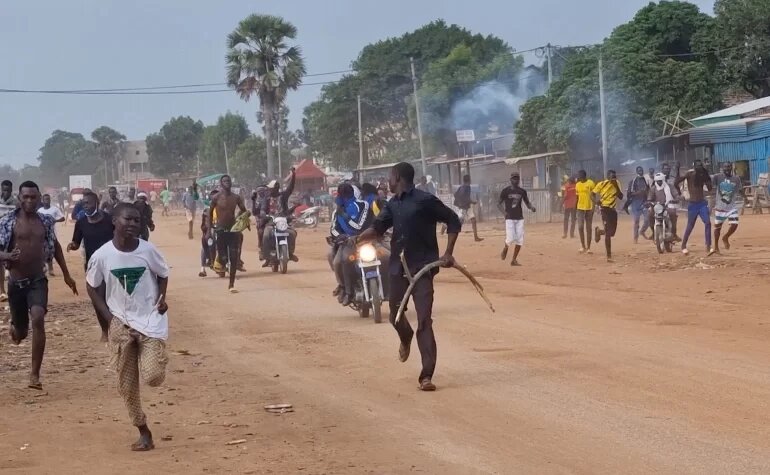The situation in Chad has been a key concern among rights groups globally.
Qatar has called for “restraint” in Chad amid violent crackdowns on anti-government protests on Thursday that followed an extension to the country’s power-transition period.
In a statement on Friday, Qatar’s foreign ministry said it was following the latest developments “with great concern”, calling on all sides to “avoid escalation, exercise maximum restraint” and “resort to the voice of reason”.
The Gulf state had hosted five months of talks between more than 50 Chadian movements, which ended on 8 August with the signing of the Doha Peace Agreement. However, some key rebel groups, including Front for Change and Concord in Chad (FACT), did not sign the accord.
“The Ministry of Foreign Affairs expresses the State of Qatar’s hope that all parties would pursue dialogue as a way to overcome differences, and its aspiration to preserve the gains of Doha Peace Agreement in Chad,” read Friday’s statement.
Demonstrators took to the streets to protest the extension of the transitional period for an additional two years on the date the military promised to step down. At least 50 people have been killed in the deadly clashes between police and protestors.
Mahamat Idriss Deby Itno assumed the Presidency of Chad’s Transitional Military Council (TMC) last year following the killing of his father and former leader Idriss Deby.
The late leader, who ruled for some 30 years, died in April last year during a military offensive led by rebel group FACT.
According to AFP, most of the deaths in the clashes between the protestors and police were recorded in N’Djamena as well as Moundou and Koumra.
Government spokesman Aziz Mahamat Saleh confirmed to the French news agency that at least 10 security forces were also killed.
The United Nations has condemned the attacks, saying it “deplores lethal use of force” while calling for an investigation into the brutal violence against protestors.
Meanwhile, France dismissed “false information” over its “purported involvement” in the latest escalations, saying they were “baseless”.
“France is not playing any part in these events, which lie strictly in Chad’s domestic political domain,” said the French foreign ministry.
Between 1900 and 1960, Chad was under France’s colonial empire, and the European country is among N’Djamena’s key allies. French President Emmanuel Macron was the only western leader to attend the late Chadian leader’s funeral.
France has also backed the current TMC head and perceives N’Djamena as a focal area in its fight against what it describes as “jihadist” military operations.
The current leader was scheduled to remain in office for 18 months after assuming power, but was sworn again as president on 10 October.
While the national dialogue was seen as a key step in ensuring long-promised elections took place, many Chadians remained skeptical over its outcome.
“In 31 years, we haven’t seen any positive change in our country,” Chadian protestor Abass Mahamat, 35, told AFP.
Meanwhile, Enrica Picco, Central Africa project director at the International Crisis Group, said demonstrations have sprouted up amid an already existing state of frustration in N’Djamena.
“The frustration and discontent among the opposition was growing since the start of the national dialogue as there were no signs from the junta to guarantee that they will leave power at the end of the transition,” Picco told Al Jazeera.
In April, Human Rights Watch (HRW) expressed concern over a worsening human rights situation in the country, accusing Deby of “carrying out arrests of dissidents and threatening critics across the country”.







